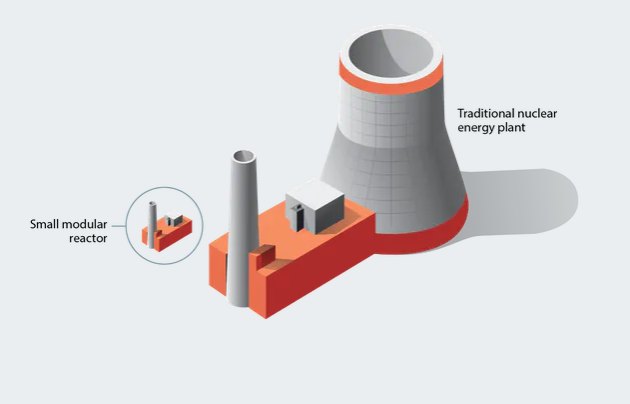By Amanda Eggert, Montana Free Press

Two bills that would facilitate nuclear energy development in the state are cruising through the Capitol, and Montana Free Press is investigating what these measures could mean for Montana’s energy future. In the first installment of this two-part series, we look at a bill proposing significant changes to how the public can engage in nuclear development decisions. Part II, publishing Thursday, will focus on a joint resolution directing the state to study modern nuclear technology that’s lauded as a smaller, safer and more affordable source of carbon-free energy than the nuclear power of the past.
Nuclear energy is having a moment in the Montana Legislature. With uncertainty surrounding the future of the state’s coal-fired power plants and the Biden administration’s aggressive targets for reducing fossil-fuel emissions to combat climate change, Montana’s energy landscape is in flux. Nuclear energy development has come up in past legislative sessions, but this year lawmakers — Republican lawmakers in particular — seem motivated to pave the way for adding nuclear to Montana’s energy mix.
The House passed a simultaneously controversial and low-profile measure last month that seeks to “eliminate restrictions on nuclear facility development.” The most obvious thing House Bill 273 does is repeal a 1978 law that requires a majority of Montana voters to approve any nuclear energy facilities before they can be built here. The bill drew unanimous support from Republicans and near-unanimous opposition from Democrats in passing the House on Feb. 16.
HB 273 is 22 pages long, but discussion has been hyper-focused on four lines the bill would remove from Montana law: “If the [Department of Environmental Quality] decides to issue a certificate for a nuclear facility, it shall report the recommendation to the applicant and may not issue the certificate until the recommendation is approved by a majority of the voters in a statewide election called by initiative or referendum according to the law of the state.”
Bill sponsor Rep. Derek Skees, R-Kalispell argues that’s an outdated law that shouldn’t constrain nuclear energy development, and he’s suggested that voters didn’t know what they were voting for when they passed the initiative that codified the requirement.

